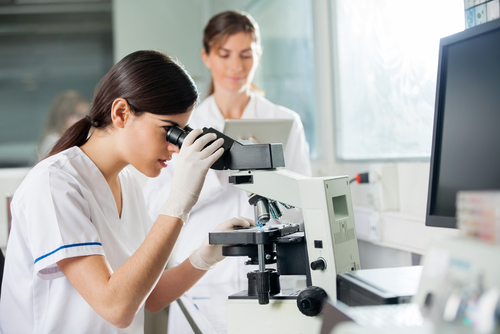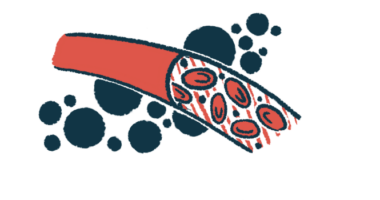Mast Therapeutics’ AIR001 PAH Therapy All-Around Stellar in Phase 2 Clinical Trial

 Overwhelmingly positive results of Mast Therapeutics, Inc.‘s Phase 2 clinical trial of AIR001 (sodium nitrite, or Aironite®) inhalation solution for pulmonary arterial hypertension will lead to the company’s pursuit of additional Phase 2 trials in the near future. All doses of AIR001 were well-tolerated by patients and provided improvements in clinically relevant health parameters.
Overwhelmingly positive results of Mast Therapeutics, Inc.‘s Phase 2 clinical trial of AIR001 (sodium nitrite, or Aironite®) inhalation solution for pulmonary arterial hypertension will lead to the company’s pursuit of additional Phase 2 trials in the near future. All doses of AIR001 were well-tolerated by patients and provided improvements in clinically relevant health parameters.
“We are encouraged by the results seen in the Phase 2 study of AIR001 and believe they further validate our acquisition of Aires,” said Brian M. Culley, Chief Executive Officer of Mast Therapeutics, in a press release from the company. Mast Therapeutics acquired Aires Pharmaceuticals earlier in 2014 and gained the rights to the AIR001 program.
[adrotate group=”4″]
Culley’s confidence derives from the study AIR001-CS05, an open-label, randomized, parallel dose study conducted at multiple treatment centers. Patients were divided into three treatment groups that analyzed different dosing regimes with varying doses and times of administration of AIR001. “To date, more than 120 individuals have received AIR001, including patients who have received repeat administration for as long as 12 months, patients who were treatment naive, and patients on pulmonary arterial hypertension disease-specific background therapy,” said Edwin L. Parsley, DO, interim Chief Medical Officer of Mast Therapeutics.
In this study, all doses resulted in marked improvements in median pulmonary vascular resistance and median distances obtained in the six-minute walk test. No serious adverse events occurred, and methemoglobin levels remained normal (<1.5%), which is not typically the case for intravenously-administered nitrite. “The data from the study show benefits consistent with prior studies and support further development of AIR001,” commented Culley. “We look forward to proceeding with the Phase 2a studies in pulmonary hypertension associated with left heart disease and anticipate reporting preliminary study results as early as the second half of 2015.”
[adrotate group=”3″]
Dr. Parsley shares Culley’s optimistic outlook. “Given the hemodynamic improvements observed, we feel AIR001 may be uniquely suited to address the serious unmet need facing the large number of patients with pulmonary hypertension associated with left heart disease,” he stated. “Consequently, we will be pursuing clinical development of AIR001 in that indication and plan to support multiple, institution-sponsored Phase 2a studies that will evaluate 1) acute hemodynamic effects, 2) acute effects versus placebo on maximum oxygen consumption and exercise hemodynamics, and 3) inhaled versus intravenous administration of nitrite, as well as the safety of multiple doses of AIR001, in patients with pulmonary hypertension associated with left heart disease.”
AIR001 was granted orphan drug status by the Food and Drug Administration and the European Medicines Agency to treat pulmonary arterial hypertension. This may facilitate progression through the three clinical trial phases while evaluating fewer patients. The AIR001-CS05 study was originally intended for 90 patients but was terminated by Aires due to capital constraints, lowering the number of patients analyzed to 29. All were treated with AIR001, which is an intermittently nebulized form of nitrite. AIR001 can be converted into nitric oxide, a potent vasodilator and attenuator of inflammation and undesired cell growth. It may soon be just what the doctor ordered to treat pulmonary arterial hypertension.







